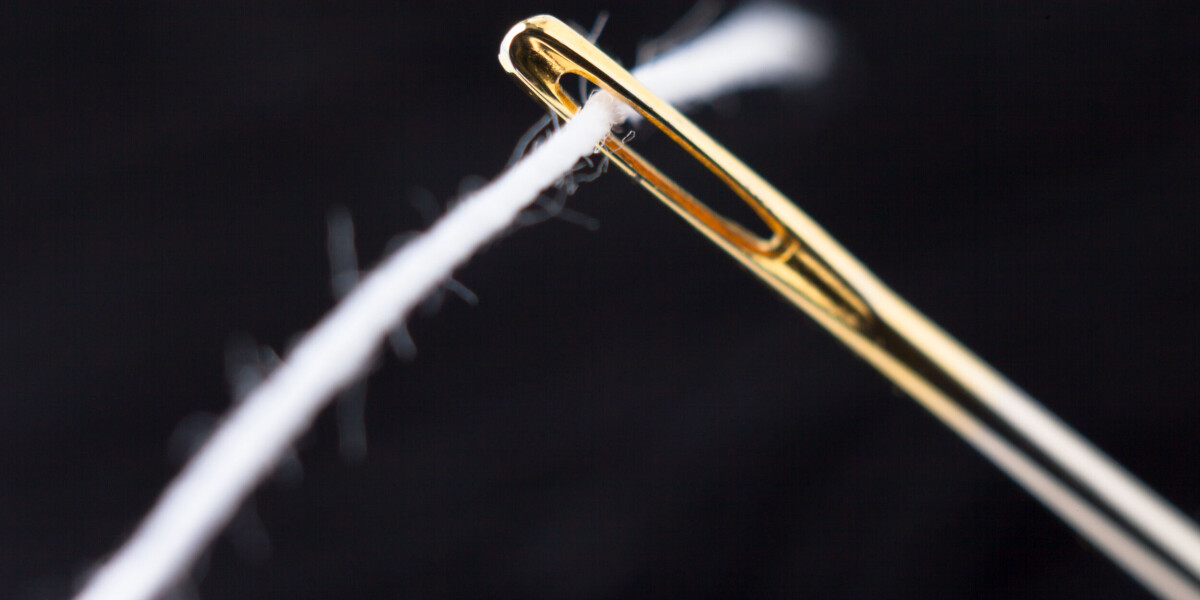
De fil en aiguille: our french expression of the week
- Select a language for the TTS:
- UK English Female
- UK English Male
- US English Female
- US English Male
- Australian Female
- Australian Male
- Language selected: (auto detect) - EN
Play all audios:

AN EXPRESSION TO REFLECT A GRADUAL PROGRESSION Learning a new language is a test of patience and determination - it happens gradually over an extended period of time. Some would even argue
that language learning is an ongoing, life-long adventure, as words and expressions are continually evolving. But if you keep at it, de fil en aiguille, you will eventually feel confident
enough to have conversations with native speakers. We look at the metaphoric meaning behind this phrase and share ways that you can use it when telling stories or describing the passage of
time, in French. WHAT DOES DE FIL EN AIGUILLE MEAN? This poetic phrase literally translates as: from thread into needle. It can be used to describe this sense of things happening gradually
or in a logical sequence. It is similar to the English sayings: ‘bit by bit’, ‘progressively’ or ‘one thing leading to another’. Alternative expressions in French are: * Au fil de l’eau -
Over time * À petit feu - Slowly * Peu à peu - Inch by inch * Petit à petit - Little by little * Au fur et à mesure - Slowly but surely Read also: Learning French: what are the origins of au
fur et à mesure and what does it mean? WHAT ARE THE ORIGINS OF DE FIL EN AIGUILLE? The expression was first recorded in the 18th Century. It stems from a metaphor: alluding to a piece of
thread creates a sense of flow and continuity, which reflects how a conversation, event or process can move from one topic or state to the next in a seamless progression. Just as a needle
repetitively passes through fabric, connecting one piece of material to another, so too does time pass us by, connecting one life event to the next. Read also: Learning French: unravelling
popular shortcuts and contractions HOW DO YOU SAY DE FIL EN AIGUILLE? This particular phrase can be difficult to say for English speakers. To break it down phonetically, fil can be
pronounced: feel. Note that usually the ‘L’ would be silent, but in this case it is slightly pronounced as it is followed by a vowel at the start of the next word. Aiguille can be
pronounced as: eh-gwee-y. In this case, the double ‘L’ is silent. WHEN DO YOU SAY DE FIL EN AIGUILLE? This expression is almost always added onto a sentence to poetically reinforce the idea
of time passing by: * Pendant notre conversation, de fil en aiguille, il m'a confié qu’il était amoureux de moi. - During our conversation, little by little he confided that he was in
love with me. * J'ai toujours aimé prendre des photos et, de fil en aiguille, j'ai amélioré mes compétences et je suis aujourd'hui photographe professionnelle. - I have always
loved taking pictures. Over time, I improved my skills and today I am a professional photographer. Read also: Learning French: when and why do we say chaque chose en son temps TO WHOM DO
YOU SAY DE FIL EN AIGUILLE? It is considered neutral language, meaning it can be used in a range of formal or casual situations with friends, family and strangers. If you would like us to
explain a particular word or expression, or if you have any other Learning French suggestions, let us know at: [email protected]
